No need to keep talking about how to convert Human Poo into Freedom & Abundance without being clear what the actual problem is. Why should we even care about human waste?
If you want to catch up on the introduction to this series, read the preface here.
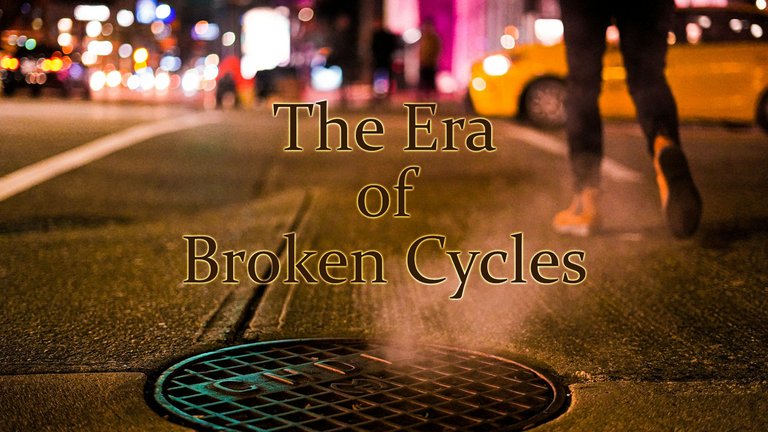
The Problem
Part of me is sad to tell you that among all the lifestyle habits and customs we have today amongst the "civilized nations" on Earth, few of them are as shocking, destructive and nonsensical as the way we handle our human sewage.
So here it goes in a nutshell:
We go to the toilet. We flush the toilet with 5-6 gallons of drinking water after every use, several times a day. Multiplied by the number of people with access to water toilets and "standard" sewage systems and we have a real behemoth of a mess on our hands already.
Let that sink in for a moment. There are round about 300 million people in the US alone. Can we even imagine how much freshwater we are talking about here being wasted per day? I really cannot.
What happens after we flush the toilet?
Well, the fresh water is being used as a transport medium, enabling the toilet contents to be moved away from your bathroom through a sewage system to a centralized place (sewage treatment plant) where all the stuff is collected. Along the way this sewage system acts as a sort of universal dumpster because everything feeds into it from the surface - pesticides from fields get washed out after a rainstorm and may end up there, heavy metals and carcinogens from roads and public transit systems collect in the gutters and get flushed, along with all the things people throw into their toilet bowls. All of them!
It might be shocking to the modern "educated" individual but everything we "get rid of" as waste or garbage... is still there. Only somewhere else where we can't see it anymore. Poof!
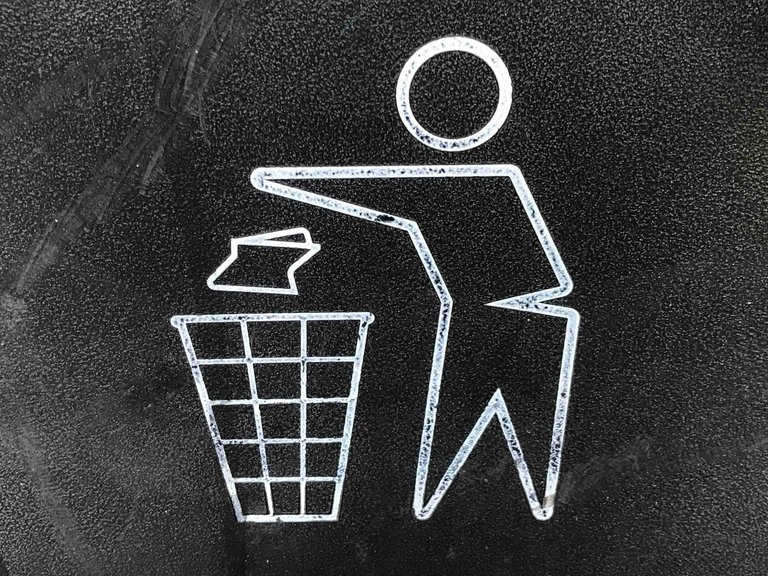
Many analyses have shown that remarkable amounts of pharmaceutical drugs, antibiotics, heavy metals, household chemicals, cleaning agents, toxins, fertilizers, pesticides, herbicides and plastic particles (to name only a mere few) have found their way into our sewage, water treatment systems, ground water and even tap water. Because people - in one way or another - have put them there. Either voluntarily or involuntarily, but generally out of ignorance. We just don't know any better.
All of these things get flushed away at one point or another, and then mix with the actual human waste which in itself can harbor all sorts of toxic things like dangerous bacteria, intestinal parasites, hepatitis, cholera, typhoid, pathogenic viruses (if you believe viruses are a thing) - let's just say things that the body has reason to get rid of and that have no place in our immediate living area. "Poisons" is what it comes down to really: Things that can become a real health hazard for human beings if we interact with them.
So this entire toxic mishmash of a mess gets transported through an elaborate underground water pipe system to this ominous sewage treatment plant.
Here "solids" are removed and the water is "treated", meaning it is 'filtered' and outright hammered with all sorts of chemicals in order to "purify" it. The problem is that many such chemicals such as chlorine are dangerous toxins themselves that are hazardous to people's health and nature at large.
If too much chlorine is let loose into the environment wildlife dies and plant life decays. From a system standpoint these chemicals are necessities in order to help "clean" the mess that is the aforementioned collected sludge in sewage treatment plants but then these chemicals find their way back into our bodies and nature through water taps in cities or the hose we use to water our garden.
Another issue is that the water isn't actually clean after the "treatment". As the Humanure Handbook puts it:
"Even after the contaminated water is treated in wastewater treatment plants, it may still be polluted with excessive levels of nitrates, chlorine, pharmaceutical drugs, industrial chemicals, detergents and other pollutants."
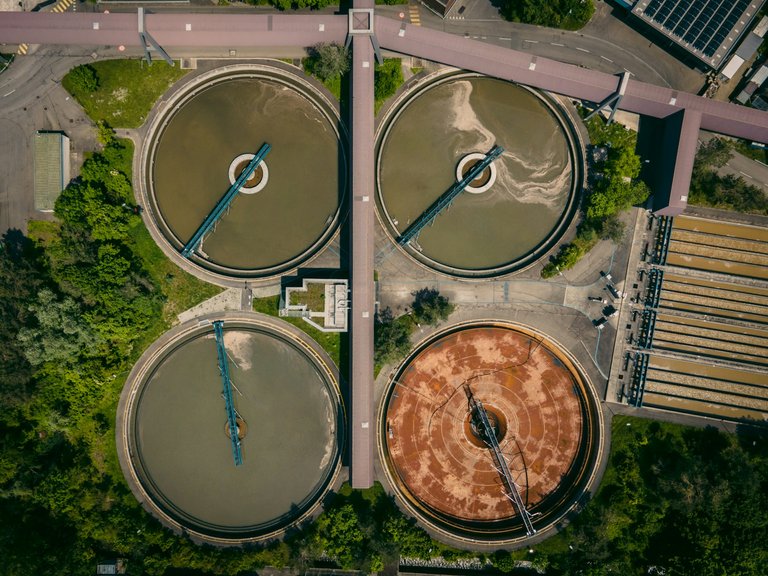
The remaining "solids" from these treatment plants are most commonly dried, transported off and dumped into landfills. They are then buried to lie there for half an eternity because they cannot and will not compost and recycle this way. Nothing in nature will want to eat it basically, or only at a ridiculously slow pace that is unsustainable.
In the few cases where these hazardous chemical graves do not leak into our groundwater outright... we have semi-permanent places of ecological despair where the pits are lined with an artifical layer of separation to keep the site from leaking (usually a type of polymer or other material barrier).
In both sorts of places nature will likely not return in anybody's foreseeable lifetime. They are otherworldy garbage dumps... and they do fill up eventually, prompting humans to find yet another place to excavate. Because people will not stop to poop just because we are too stupid to handle our poo. Nope! "Here, quick! Look at my wonderful new bathroom!"

My God!
Yap! That is what we do with our 'waste'. Hard to believe huh? We label it as "waste" and we treat it as such, or rather: We have other people treat it as such. We just want it to be gone! Promptly!
There are many so-called "septic tank systems" in more rural areas that are not connected to sewage pipes but the process is similar. Solids need to be removed periodically and "gotten rid of somehow" whereas the water is at least "only" polluted with local things on site. Septic tanks do process the sewage over time in an anaerobic process (where no oxygen is present) but this is nowhere as efficient or safe as using an aerobic composting method. Septic tanks therefore can become real breeding grounds for dangerous bacteria and all sorts of dangerous agents.
Sometimes the toxic sludge from septic tanks and treatment plants is not buried and covered, it is incinerated. We "burn the shit out of it", only... we don't really.
GREAT IDEA, just burn all the stuff and transform it that way (*eyeroll). It seems we have a strong intuition of somehow transforming the stuff into something else but we just can't figure out how or into what, gosh darn it!
After burning all the stuff of course many of the pollutants do find their way into the atmosphere unless they are also filtered out again.
So you see, something is completely off the rails here. And anyone who uses a water toilet is partaking in this mess every single day.
Imagine the scope of this "waste disposal system" happening pretty much anywhere in the "civilized world". It's amazing we are still alive at all, don't you think?
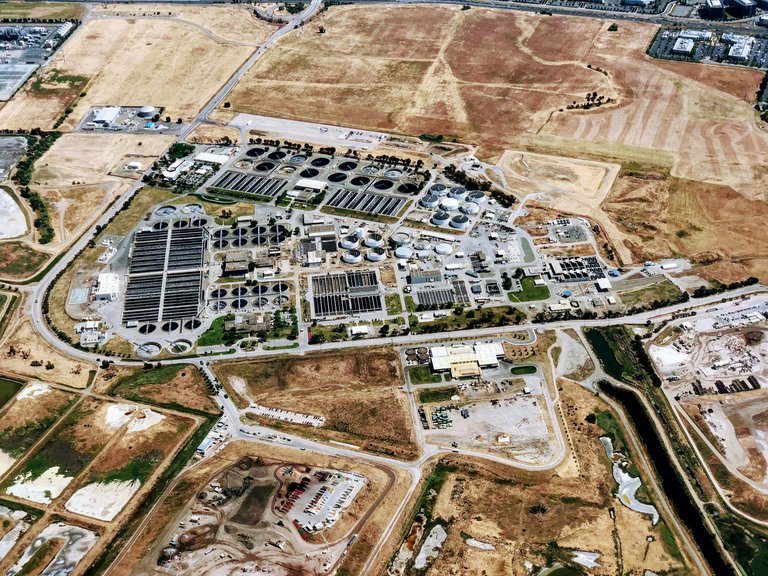
Imagine also for the moment the sheer amount of work, time and energy involved in this elaborate and ultimately futile and toxic process. Countless people work on this every day, all the infrastructure has to be built and maintained. Toilet systems installed, landfills established, chemical agents produced and transported. Many industries are directly involved in this corpoolent zombie of a waste management system.
It's like a mad crowd of crazy people who build seaports and maritime trading docks in the middle of a desert. Everybody is congratulating one another but really: They are completely misjudging their situation... and simply carry on.
There is also another problem:
Elaborate sewage systems bring with them the potential to break. If only one sewage pipe anywhere gets ripped apart by accident or by - say - an earthquake... all that toxic mess is released out into the environment and groundwater. Such is the nature with complex systems: the more parts you have to a machine the more things can go wrong.
I'm sure after this horrendous rundown you can see the issue with this sort of approach. And if you are acquainted with the tactics of the gang that runs the show on Earth (whoever they turn out to be) you know that the system described above does create "jobs" and endless amounts of work for humans (meaning it purposefully keeps us busy with counterproductive nonsense and thereby binds our life energy). Instead of solving an issue this system maintains the problem and compounds it longterm in an outright hellish fashion.
So whenever you hear somebody talk about "the wars of the future will be fought for water, not oil" - you know better than them what they are talking about.
It is the ultimate symbol for a broken cycle we are all a part of - unwittingly until about 7 minutes ago. Now you know.
If we want to live on Earth we need to find our rightful place in the cycle of life again or there will be no nature and resources left a few generations down the line. That I feel is the real climate problem. And nobody is talking about our poo anywhere!
So...
*deep breath in
I have just scratched the surface here, and that in itself is quite scary enough I know. If you want the full horror story you got to read the first chapters of the humanure handbook, it's a merciless and exhaustive detail listing of everything wrong with our current system and cites a lot of scientific literature to back up all these claims. But...
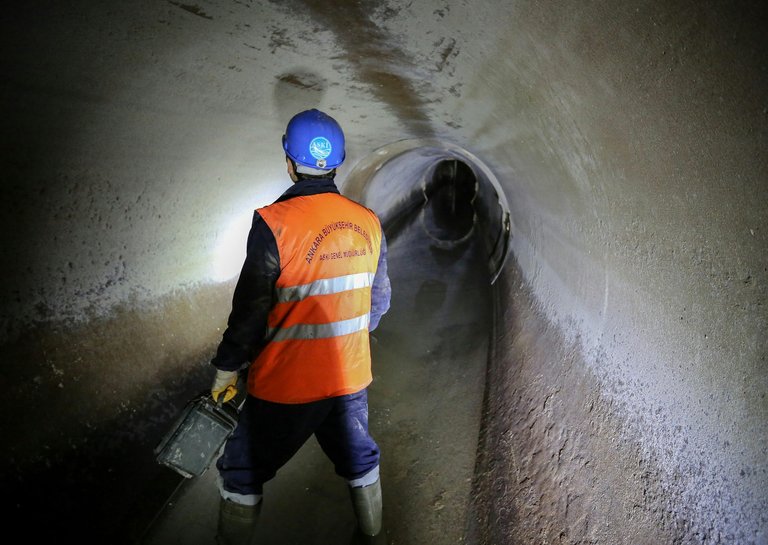
Please stop!
Gladly!
Now imagine there was a better way!!
A way that does not involve collecting poisons and polluting our fresh water. A way that would naturally recycle all that was once a health hazard. A way that doesn't cost you anything, saves all the precious water, eliminates a major source of environmental pollution and even pays us in organic fertilizer on a regular basis that we can use to grow food!
The good news is: That way exists.
And it has existed for thousands of years. It is decentralized, it works like a charm and it is very easy to do because nature does it automatically if we don't get in her way.
Which finally brings us to the proposed solution of humanure composting... in part two of this series. So do check back in ;)
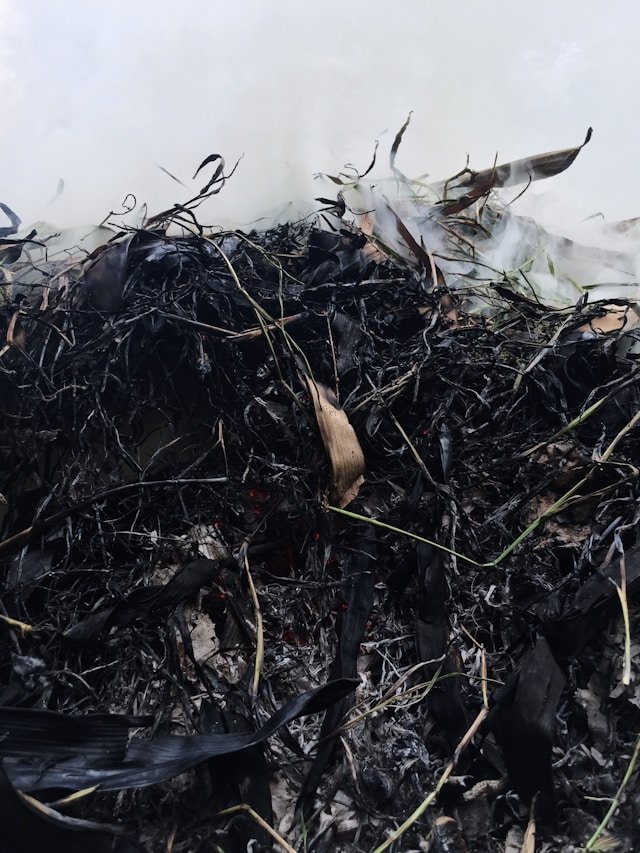
To be continued in
Part 2 - Nature, the Grandmaster of Transformation
Img srcs: unsplash.com unsplash.com unsplash.com unsplash.com unsplash.com unsplash.com unsplash.com
Thanks for stopping by <3
Part 2 - Nature, the Grandmaster of Transformation